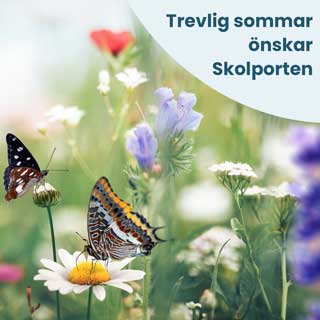Writing across the Curriculum in Compulsory School in Sweden
Erika Sturk har undersökt hur lärare i den svenska grundskolan arbetar med skrivande i sin undervisning.
Erika Sturk
Professor Eva Lindgren, Umeå universitet. Docent Ann-Christin Randahl, Göteborgs Universitet.
Professor Malte Blikstad-Balas, Universitetet i Oslo
Umeå universitet
2022-05-20
Skrivande i skolans alla ämnen i den svenska grundskolan
Writing across the Curriculum in Compulsory School in Sweden
Writing across the Curriculum in Compulsory School in Sweden
We live in a mass writing society (Brandt, 2015) with high demands on the citizens’ abilities to write for full participation, and effective teaching of writing is important. This thesis explores how writing is taught in Swedish compulsory school across the curriculum, investigating both how teachers talk about and teach writing. The aim of the doctoral project is to explore how writing is taught across the curriculum in Swedish compulsory school. Two main questions are raised: What discourses of writing can be identified among teachers across the curriculum? How do teachers use writing for pedagogical purposes across the curriculum? These questions are investigated in three studies based on different empirical data. In the first, 60 teachers in Swedish as L1 in school years 1–9 described their teaching of writing in a questionnaire. In the second study, teachers’ interactions about the teaching of writing were explored in an extended staffroom on Facebook for teachers in both Swedish as L1 and as L2 in school years 1–9. In the third study, the teaching of writing in school practice across the curriculum was observed in school years 4–6.
Ivanič’s (2004, 2017) framework for discourses of writing and learning to write was employed as an analytical tool. This framework builds on theories of language use in layers, accomplishing a comprehensive understanding of the teaching of writing. The framework consists of seven discourses of writing: a skills discourse, a creativity discourse, a discourse for thinking and learning, a process discourse, a genre discourse, a social practices discourse, and a sociopolitical discourse.
The findings reveal that writing across the curriculum was undertaught but writing as a tool for learning – enacted in a discourse for thinking and learning – had a strong position. In language subjects, text-focused writing discourses dominated (a skills and a genre discourse) and a creativity and a process discourse were identified, often combined with a genre discourse. Contextfocused writing (a social practices and a socio-political discourse) was rare, as has been shown by other studies (cf. McCarthey et al., 2014). Language teachers seemed responsible for the teaching of writing, and models for writing were common, e.g., a practical process model and a model for genre writing. The pupils wrote for learning outcomes, and for their teacher, and there was a lack of participatory writing or a critical view on writing. Finally, a comprehensive teaching of writing is argued to develop pupils’ writing proficiency. How such teaching can be achieved is discussed in relation to teachers’ beliefs, the curriculum, subject conventions, school material (cf. Smidt, 2010), and colleagues and key persons on social media – and in relation to what literacy skills that are necessary in the 21st century.
Relaterade länkar

Elevhälsa
 Åk F–Vux
Åk F–Vux
Hedersrelaterade normer och förtryck i förskolan
 Fsk
Fsk


